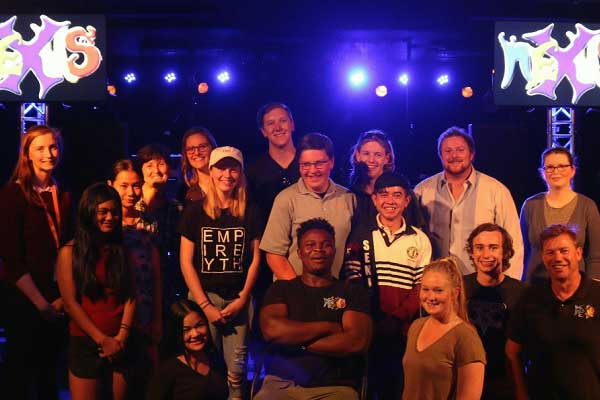
CeRDI awarded funding through the VicHealth’s Alcohol Culture Change Grants for Local Councils
5 June 2017
Horsham Rural City Council (HRCC), in partnership with Federation University’s Centre for eResearch and Digital Innovation (CeRDI), have been successful in securing funding through the VicHealth’s Alcohol Culture Change Grants for Local Councils.
The Alcohol Culture Change Initiative aims to prevent alcohol related harm by improving cultures of risky drinking within Victorian subpopulations. VicHealth are investing $3.1 million to drive cultural change in at risk populations. The initiative recognises that the ‘one size fits all’ approach does not address the diverse drinking cultures within the Victorian community, and have funded targeted programs for anticipated, greater impact.
CeRDI was engaged in 2016 to collaborate with the HRCC in an application to VicHealth’s Alcohol Culture Change Grants for Local Councils. HRCC was one of eight council’s state-wide to receive funding for a pilot (Stage 1) study to assess alcohol culture and identify potential health interventions leading to cultural change and safer, reduced alcohol consumption for young people (aged 15-20 years) in the region.
The project aimed to capture insights to form an understanding of the current practices of alcohol consumption and alcohol misuse in the region, and to identify opportunities for cultural change to reduce alcohol use.
As a result of Stage 1, it was identified that:
- Alcohol is viewed as a key mechanism to have fun in an environment with limited options for entertainment. Drinking until you are drunk is a dominant and accepted norm within the sub population. The lack of alternative activities for rural youth was found to play a role in sustaining this worldview as drinking was conceptualised as a logical and readily accessible alternative to alleviate boredom and to connect with peers.
- The most common settings for drinking behaviour for this sub population was identified as parties and smaller social gatherings within private homes and in rural locations (farms and halls). Pre loading prior to attending these settings is a behavioural norm.
- Drinking to risky levels was found to be more likely to occur within a party setting, with alcohol used as a mechanism to socialise, fit in and belong to an identified social group. Those choosing not to drink risk exclusion and identified the need to develop strategies to either hide that they are not drinking or to gain acceptance as a non-drinker within a setting in which drinking ( often at risky levels) is the dominant norm.
- Ease of access to alcohol has a significant influence on levels of drinking with the main source of supply identified as being siblings, older peers and parents.
- An exploration of local role models relevant to this sub population failed to identify role models that had relevance and influence across the sub population. Parents and peers were identified as being those most likely to shape and influence behaviour within the sub population.
- While there are no notable differences in quantity of alcohol consumed by males and females within the sub population, there are distinct gender differences in patterns of drinking and in the level and type of risk taking behaviour. There is also difference in the extent to which drinking is accepted and conceptualised by the broader rural community based on gender.
This research data was used to inform the development of a model to promote a shift in existing alcohol culture among rural young people. The project titled ‘Rural youth action – Challenging Alcohol Norms (RyACAN)’ involves a multidimensional approach which targets key stakeholders; young people, parents and the wider community to shift norms around alcohol consumption and alcohol misuse in the region.
This project was one of four projects awarded Stage 2 funding to implement the model over next 24 months.
The program will include building knowledge, awareness and capacity, an integrated education program for parents and young people, and a social marketing campaign to counter current perceived norms and promote alternative choices for young people. Alongside the intervention is a comprehensive research program to measure the outcomes and impact on the drinking culture of young people with the HRCC.
For more information about the project contact Dr Angela Murphy, CeRDI Senior Research Fellow: aa.murphy@federation.edu.au
www.cerdi.edu.au/cb_pages/alcohol_culture_and_change_in_the_wimmera.php
 |
